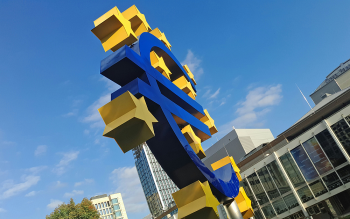An international team of researchers reports on single-electron operations in an industrially made silicon device, similar to those used as transistors, presenting a new method to manufacture spin-based quantum computers in an industrial setting.
In the road towards achieving a global quantum internet, there are several issues that demand focused attention. Building viable quantum computers requires a need for scalability. For the moment, researchers have only built them in controlled academic environments.
Now researchers from the Niels Bohr Institute in Denmark and the CEA-LETI Research Institute in France present new results on quantum devices fabricated entirely using 300-mm-wafer foundry processes. Leti’s manufacturing method is based on fully-depleted silicon-on-insulator (FDSOI) technology and could pave the way towards scaling quantum computers. In a paper published in Nature Communications, the team reports on a silicon device, fabricated similar to everyday transistors, which can host four quantum dots and can perform single-electron operations at low temperatures.
Qubits can be achieved in several ways, and one of them is using the spin of electrons. In the 90s, scientists working in Quantum Computing focused on using the electron spin as a qubit since this particle is extremely small, the magnetic field associated with its spin is extremely weak and, consequently, very hard to measure. The fact that the electron spin can only be “up” or “down”, (only two states) and that it is controlled by the laws of quantum physics, makes it the perfect candidate to become the fundamental building block in a quantum computer.
In the spin-based qubits, the spin polarization on an electron encodes the value of the qubit. To control the spin of a single electron, we need quantum dots.

Exchange of two electrons by permutation within a 2D array.
Quantum Dots (QDs) are extremely small semiconductor particles or crystals, as small as a few nanometers in size, and because of their size, they are capable of having unique optical and electronic properties. Silicon quantum dots are especially interesting because they open the possibility to fabricate spin-based quantum processors at an industrial level. As the large mass associated with electrons in silicon puts a limit on single-electron operations, such devices have only been built in academic clean rooms until now.
The Niels Bohr Institute team joined forces with the French microelectronics company CEA-Leti, which industrially produces wafers for applications such as mobile phones. They found these devices suitable for a qubit platform in two dimensions.
The resulting device is a 2D array – a 2 x 2 lattice - consisting of an undoped silicon channel connected to a highly doped source and a drain reservoir, and overlapped in some parts by four gate electrodes. Each of those four gates can induce one quantum dot, with a controllable number of electrons, and each of the quantum dots controls a single electron. This array of qubits enables the interaction among all four-quantum dots, which is an important step for error correction in quantum computing.
The new manufacturing method of using industrially produced silicon devices opens the door to foundry-fabricated quantum computers, bringing us closer to scale quantum computers. Furthermore, two-dimensional arrays can serve to improve error correction routines, as qubits can keep each other under control. This is also important in achieving computers protected against individual failure of qubits, fault-tolerant computers.
The team of researchers is also part of the Quantum Flagship's new project in quantum computing QLSI "Quantum Large-Scale Integration with Silicon". They will join forces with AQtion and OpenSuperQ to develop a European quantum computer, setting the basis for the EU's industrial-scale implementation of semiconductor quantum processors, focused on demonstrating that spin qubits are the leading platform for scaling large numbers of qubits.
Cited article
Ansaloni, F., Chatterjee, A., Bohuslavskyi, H. et al. Single-electron operations in a foundry-fabricated array of quantum dots. Nat Commun 11, 6399 (2020). https://doi.org/10.1038/s41467-020-20280-3



